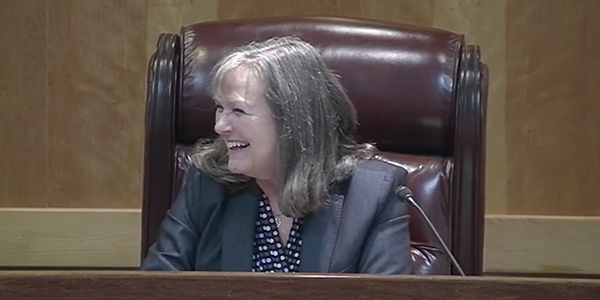
The Texas Public Utility Commission last week approved the withdrawal of a certificate of convenience and necessity (CCN) rights transfer between NextEra Energy Transmission Southwest and Rayburn Country Electric Cooperative (48071).
The two entities had agreed in 2017 that NextEra would acquire Rayburn Country’s rights to own and operate a 30-mile segment of a 138-kV transmission line in East Texas. But the companies now say the transaction has been rendered moot by 2019 legislation that gave incumbent transmission companies the right of first refusal to build new transmission lines. (See Texas ROFR Bill Passes, Awaits Governor’s Signature.)
The transaction had been approved by a PUC administrative law judge in January 2019. However, that May, the state legislature passed Senate Bill 1938, which grants CCNs to build, own or operate new transmission facilities “only to the owner of that existing facility.”
In their request to withdraw their joint application, the companies said the legislation “precluded the PUC from granting the application.” NextEra and Rayburn Country also said an asset purchase agreement behind the application had been terminated, thereby mooting the transaction.
Hanna Restoration Efforts Continue

The commissioners complimented AEP Texas and several other utilities for their restoration work following Hurricane Hanna’s July 24 landfall in South Texas.
“They’ve done a fabulous job of getting people back on,” said PUC Chair DeAnn Walker. She noted outages peaked at 297,000 but had dropped to nearly 2,800 by the July 31 open meeting.
AEP Texas President Judith Talavera, who called into the meeting, said crews have been repairing 700 distribution poles, 280,000 conductors and 35 transmission structures. The company has asked residents in the Rio Grande Valley to conserve electricity until Aug. 14 while it rebuilds a two-mile stretch of a 138-kV transmission line damaged by the storm.
Magic Valley Electric Cooperative said Hanna “dealt a heavy blow” to its system, and it has warned customers about prolonged outages.
ERCOT’s Virtual Meetings OK’d
The PUC granted ERCOT‘s expedited request to amend its bylaws, waiving a requirement that a proposed order be served 20 days before considering the application at an open meeting (50918).
The order clears the way for the grid operator to expand its definition of urgent matters so that its board of directors and its subcommittees can meet virtually during the COVID-19 pandemic. ERCOT stakeholder groups have already been meeting virtually since March.
“When the bylaws were written, COVID-19 didn’t exist, and we didn’t know this was going to happen to us,” Walker said. “These meetings have been awkward at best. I appreciate [ERCOT’s] efforts to fix this.”
PUC Looking at EV Charging Stations
In other actions, the PUC approved staff’s solicitation of comments as they review issues relating to electric vehicles in advance of next year’s state legislative session (49125).
The commission is considering which companies can own or operate EV charging stations, how their costs would be recovered and whether their operation would constitute retail sales.
“I appreciate everyone staying plugged in,” Commissioner Shelly Botkin said, before acknowledging her unintended pun.
“We know this is not the sum total of EV things we’ll have to address before the session starts,” Commissioner Arthur D’Andrea added.
The commission also:
- Gave staff the go-ahead to begin work on a proposed rule change broadening the pool of candidates eligible to serve as the ERCOT wholesale market’s reliability monitor. The Texas Reliability Entity currently fills that role (50602).
- Approved distribution cost recovery factors for AEP Texas (50733) and Oncor Electric Delivery (50734). AEP Texas’ DCRF was based on an annual revenue requirement of $39.1 million after adjustment for load growth. Oncor was granted an incremental increase of $69.9 million to its DCRF revenue requirement.



